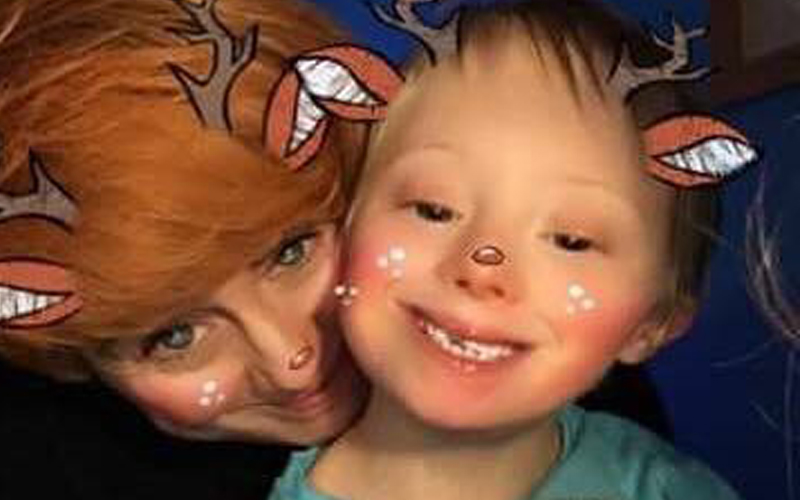It means that the person who depends on me has all the help they need: not just to make their life possible, but to make it happy, comfortable and fulfilling.
It means that I don’t have to worry whether they are being cared for properly: I know they are getting the best, most loving, care.
It means I will be missed when I am gone.
It means I don’t look into the future: most of it is obscured by dark grey clouds of worry.
It means I have to make concrete plans for a future I can’t see and don’t want to think about: who will help him cope with my absence when I am gone?
Who will be there for him to love, and will they love him back?
How much will he be able to for himself by then?
What services will there be still left to help him?
It means I face my own mortality every day.
It means my doctor thinks I am a hypochondriac:
I worry that every small ailment that befalls me might be the start of something serious, and I need to get it checked out, because if it is I need to seek treatment early.
I can’t afford to be incapacitated or to die prematurely — you see, I have someone who depends on me.
It means, conversely, that I don’t always behave in a healthy way: it can take a lot of coffee and biscuits to recover from a difficult morning, or to get me to the end of a piece of writing that someone, somewhere, might pay me for.
It might be cute to think of myself as ‘powered by fairy-dust’, but the truth is I’m powered by rich-tea crumbs.
It means I have to accept stress as part of my life and learn how to mitigate it: and THAT has nothing to do with scented candles and bubble bath – or wine, either.
A hangover will only add to the stress.
It means I must also decline most invitations to social events:
You see, there are very few people who are either willing or able to care for my child, so nights out are precious.
But, if I do come to your shindig, then you can rest assured that you are a very important person in my life.
It means I’m not as good a friend/relative as I’d like to be:
please believe I did think about you today.
I did fully intend to call or message you.
But before I could there was something I had to take care of that wouldn’t wait, or something that came up unexpectedly that could not be ignored or put off, and once again my last thought as my head hit the pillow was ‘Oh bugger, I didn’t get in touch with so-and-so. Again.’
It means that I must also decline any invitation to play with the Competitive Mothers:
You see, I do ‘Punk’ mothering! It’s a completely different game; one which often requires you to make up the rules as you go along.
Everyone who plays it is playing by their own rules: so there can be no competition except with oneself – we’re all just trying to do better today than we did yesterday.
It means I see a whole community of people who are all but invisible to the rest of the world:
other carers and their loved ones. Though I have never met most of them, and will never do so except, probably, via the internet, they are my tribe.
I have more in common with them than with many of the people who are part of my real day-to-day life.
It means I now realise that my other children DID come with a manual, of sorts:
our parents, grandparents, aunts and uncles, siblings, cousins, friends and peers can all give us advice on how to raise a typically-developing child.
But, when it comes to raising a child with ‘designer genes’ most of them won’t have a sodding clue, because they’ve had no experience of it.
It means I know that the words ‘tantrum’ and ‘meltdown’ are not synonyms.
It means that I am resourceful: however, most people don’t call it that, they use terms like ‘weird’, and ‘whatever is she doing?’ or ‘why doesn’t she do something about that’ (see above ‘Punk’ Mothering).
But it means, first and foremost, that I am a parent.
It means that I have someone that I love, and who loves me.
It means that they are not alone, and neither am I.
